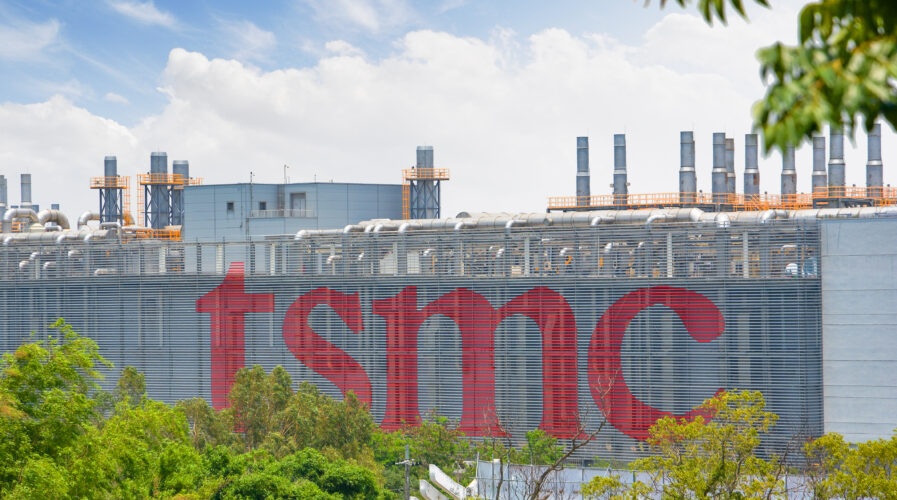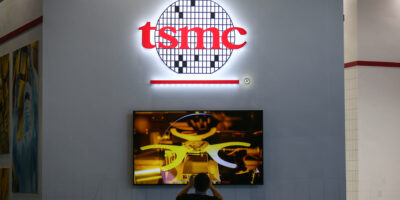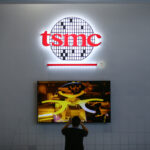
TSMC also expects a smooth ramp for its latest, most advanced 3nm technology in 2023. (Source – Shutterstock)
TSMC to open first Europe chip plant in Germany
- Following its expansion in Arizona and Japan, TSMC is looking to capitalize on demand from Europe’s car industry.
- The world’s largest chip maker is also said to be in advanced talks with key suppliers about setting up its first potential European plant in the German city of Dresden.
- The plant would focus on 22-nanometer and 28-nanometer chip technologies.
In 2021, the world’s largest chip maker, Taiwan Semiconductor Manufacturing Co (TSMC), said it has its eyes set on Germany for its first plant in Europe. Talks with several local clients about the feasibility of such a project came to a halt following the invasion of Ukraine. Ever since then, there has been a growing demand from Europe’s carmakers for a supply of locally manufactured cars and the demand seemed to have prompted TSMC to revisit the idea.
In a report by Nikkei Asia last year, TSMC chairman Mark Liu was quoted saying that the talks at that point were in the early stages, so the company has yet to decide if this is the ideal place to set up shop. Ultimately, it would depend on the local supply chain, the needs of TSMC’s customers, and the overall cost of building and operating the fabs.
Fast forward to last week, Nikkei Asia reported that TSMC is apparently in advanced talks with key suppliers about setting up its first potential European plant in the German city of Dresden. Apparently, the Taiwanese company is sending a team of senior executives to Germany early next year to discuss the level of government support for the prospective plant as well as the capacity of the local supply chain to meet its needs.
Quoting people familiar with the matter, the trip will be the second in six months by TSMC executives and a final decision on whether to invest billions of dollars in a plant. The TSMC plant could begin construction as early as 2024 and a decision on the plant is expected to follow soon after the second trip.
Frankly, the decision to build the plant could well be a major boost for the European Union, which like the US, is also racing to cut its reliance on importing semiconductors from Asia. “TSMC’s talks with several materials and equipment suppliers are focused on whether they can also make the investments required to support the plant, people familiar with the matter said,” Nikkei stated.
Of course mManufacturing chips is anything but a simple process — in fact, it relies on more than 50 types of equipment, such as lithography and etching machines, and over 2,000 materials, including chemicals and industrial gasses.”We would try to support our customers. We wouldn’t let [them] walk alone in the desert,” Nikkei stated, quoting one executive from a supplier that would provide key materials to the Dresden plant, who added that state support will be required.
Should TSMC press ahead with a Dresden plant, it would focus on 22-nanometer and 28-nanometer chip technologies, similar to those it plans to make in a factory it is developing with Sony in Japan. Nanometers refer to the size of each transistor on a chip — the smaller the nanometer, the more powerful and advanced the semiconductor.
Separately, a senior Japanese lawmaker on Friday shared that TSMC is also considering building a second plant in Japan in addition to an US$8.6 billion dollar facility now under construction. Yoshihiro Seki, secretary general of a ruling party lawmakers’ group on chip industry strategy, was urged that Japan’s government, which has pledged to provide up to 476 billion yen (US$3.6 billion) in subsidies for the first TSMC plant, provide a favorable environment for investment.
TSMC earlier this month also confirmed that it is preparing another multibillion-dollar factory investment in Arizona, to expand its production in the US. They plan to build a cutting-edge semiconductor plant north of Phoenix, near another chip factory that the company began work on in 2021. The extended facility by TSMC would produce chips with advanced 3-nanometre technology, but the plans are not finalized yet, said the company’s founder Morris Chang.
READ MORE
- 3 Steps to Successfully Automate Copilot for Microsoft 365 Implementation
- Trustworthy AI – the Promise of Enterprise-Friendly Generative Machine Learning with Dell and NVIDIA
- Strategies for Democratizing GenAI
- The criticality of endpoint management in cybersecurity and operations
- Ethical AI: The renewed importance of safeguarding data and customer privacy in Generative AI applications


